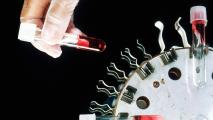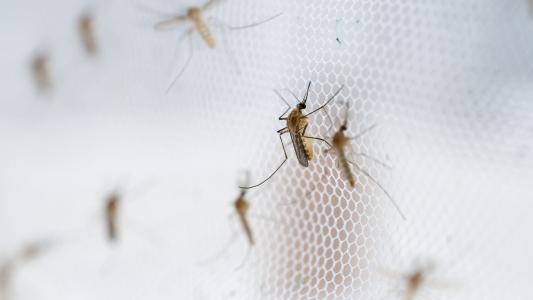A new gene therapy designed to treat children born without functioning immune systems was incredibly successful in trials, functionally curing 48 out of 50 young participants.
Amazingly, the cure for their immunodeficiency used a disabled HIV virus, which was modified to insert the critical missing gene for their immune system. Three years later, 95% are still effectively cured.
Bubble babies: Severe combined immunodeficiency (SCID) is the technical name for the disorder better known as “bubble boy disease,” a reference to David Vetter, a young boy who suffered from the disorder.
Because babies born with SCID have incredibly weak immune systems, they are extremely vulnerable to infectious diseases — Vetter’s parents raised him in a super-sterile environmental bubble in an attempt to protect him against infection, but he still died at just 12 years old.
ADA-SCID is the second most common form of bubble boy disease. Babies born with it have mutations in their ADA gene that prevent it from being able to create an enzyme that the immune system needs to function.
The challenge: There are existing treatments for ADA-SCID, but none are ideal.
Patients can get infusions of antibody-packed immunoglobulin and four to eight injections of the ADA enzyme every month for the rest of their lives, while also taking antibiotics and antifungal medications regularly — an expensive, logistically complicated approach, fraught with side effects from long-term use of the medications.
The other option is a bone marrow transplant, but that’s only possible if a match can be found — and even then, there’s the risk of rejection.
“I saw young bone marrow transplant patients who developed graft-versus-host disease and others who had to take all these anti-rejection medications and still had issues,” Chelsea Oakley, mother of one of the trial participants, said in a press release.
“I just thought no one should have to suffer like this.”
The gene therapy: During the new trials, blood-forming stem cells were collected from 50 children. A disabled AIDS virus was then used to inject a new copy of the ADA gene into the stem cells, which were then cycled back into the children’s bodies.
People ask us, is it a cure? Who knows long term, but these children are doing well.
Stephen Gottschalk
The researchers followed up with the children for three years, reporting the results of the trials in the New England Journal of Medicine on May 11.
“All the patients are alive and well, and in more than 95% of them, the therapy appears to have corrected their underlying immune system problems,” co-lead author Donald Kohn of UCLA said in a press release.
The two children that didn’t respond to the gene therapy returned to their normal treatment regimens, and one has since received a bone marrow transplant.
The next steps: No one knows for sure whether the effect of the gene therapy will be permanent, and larger trials involving more children are still needed to prove its efficacy.
Still, the fact that four dozen children born with ADA-SCID are now living outside the bubble is worth celebrating.
“People ask us, is it a cure? Who knows long term, but at least up to three years, these children are doing well,” Stephen Gottschalk, who wasn’t involved with the trials, told AP News. “The immune function seems stable over time, so I think it looks very, very encouraging.”
We’d love to hear from you! If you have a comment about this article or if you have a tip for a future Freethink story, please email us at tips@freethink.com.






